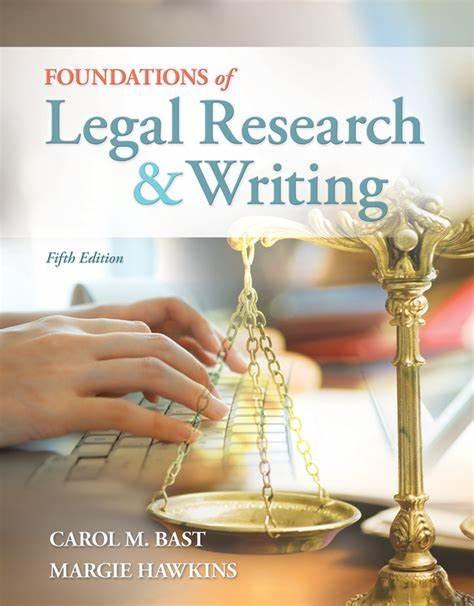6 Connections Between Legal Research and Strong Legal Writing.
Table of Contents
Introduction
Legal research and legal writing are two essential skills that are intertwined and complement each other. Research of various topics involves finding relevant sources and materials to support arguments, while legal writing involves presenting those arguments in a clear and persuasive manner.
In law school, research related to topics of law is often taught in conjunction with legal writing because the two skills are interconnected. Effective research related to various topics requires the ability to think critically and to identify and analyze legal issues, while effective writing requires the ability to communicate arguments clearly and persuasively.
Legal Research


Research is the process of finding and analyzing information to help lawyers and legal professionals make informed decisions and arguments. Research related to different topics can involve a wide range of sources, including primary sources of law such as constitutions, statutes, regulations, and case law, as well as secondary sources such as legal treatises, law reviews, and legal encyclopedias.
The purpose of the research is to locate information that is relevant to a particular issue or question. This information can be used to support arguments, make informed decisions, or provide guidance on legal procedures and requirements.
Research of the topics typically involves several steps, including identifying the issue or question, locating relevant sources, analyzing and synthesizing the information found, and applying the law to the specific situation or case at hand. The process may also involve verifying the authority and reliability of the legal sources, as well as updating the research to ensure that the information is current and accurate.
Research is a critical skill for lawyers and legal professionals, as it forms the basis of arguments, opinions, and decisions. Effective research requires attention to detail, critical thinking, and the ability to navigate complex system of law and sources.
Legal Writing


Legal writing refers to the style and format of written communication used in the legal profession. It can take many forms, including briefs, memoranda, contracts, pleadings, and opinions, among others.
Effective writing is clear, concise, and persuasive, and it often involves the use of specialized legal terminology and citation formats. Writers must be able to communicate complex concepts and arguments in a way that is understandable to their audience, which may include judges, clients, colleagues, or other professionals.
It also requires attention to detail, accuracy, and thoroughness. The writers must be able to analyze and interpret sources, including case law, statutes, regulations, and other materials, and they must be able to use this information to support their arguments and conclusions.
In addition, it often requires an understanding of the rules of practice, including procedural requirements, ethical obligations, and professional standards. The writers must be able to navigate these rules and requirements while also crafting effective and persuasive documents.
Overall, it is an essential skill for lawyers and other professionals, as it is the primary means of communicating arguments, opinions, and decisions. Effective writing requires a combination of knowledge, analytical skills, and clear communication abilities.
Relation between Legal Writing and Research
Legal writing and research are closely related and often go hand-in-hand. Research provides the foundation for writing, as it involves finding and analyzing information to support arguments and conclusions.
Legal writers rely on the research of various topics to find relevant sources and materials to support their arguments and conclusions. Without thorough and accurate research, the writing can be weak, unsupported, or inaccurate. Research of the topics can also help the writers identify and address potential counterarguments in their writing.
On the other hand, legal writing informs researchers by providing guidance on what sources to search for and what questions to ask. Effective writing requires an understanding of the issues and context at hand, which can guide the research process and help researchers identify the most relevant sources and materials.
Writing also involves the application of the research to specific issues or cases. The writers must be able to synthesize and analyze the information gathered from the research and apply it to the particular issue at hand. Effective writing requires an understanding of legal concepts and how they apply to specific situations, which is informed by the research of the related issue.
The importance of research in legal writing cannot be overstated. The research provides the foundation for any writing project, from a brief to a law review article. It is only by conducting thorough and accurate research on the issue that a writer can find the authority and precedent necessary to support their arguments and persuade their audience.
Furthermore, the research helps writers to understand the legal context and background of their topic, which can be crucial in shaping their arguments and addressing potential counterarguments. Without a thorough understanding of the law, the writers risk making inaccurate or unsupported claims that can weaken their arguments and damage their credibility.
In short, legal writing and research are essential skills for any lawyer or law student. Overall, these two are complementary skills that are essential for any lawyer or other professional. The relationship between the two is critical, and a strong foundation in research can make all the difference in producing effective and persuasive writing.
Conclusion
In conclusion, legal writing and research are two essential skills that are closely related and interdependent. Research of various issues provides the foundation for writing, as it involves finding and analyzing the information to support arguments and conclusions. Effective writing requires an understanding of legal concepts and context, which is informed by the research of the topics. Legal writing also informs legal researchers by providing guidance on what sources to search for and what questions to ask. Overall, the relationship between the two is critical, and a strong foundation in both skills is essential for any lawyer or other professionals.
FAQs
How does legal research contribute to effective legal writing?
Legal research is a crucial component of effective legal writing as it provides the necessary foundation and support for the writer’s arguments and analysis. Through research, writers can find relevant statutes, case laws, legal opinions, and scholarly articles that inform and validate their writing. By conducting thorough research, writers can ensure accuracy, credibility, and persuasive power in their legal documents, leading to well-supported and compelling written arguments.
What are the key sources for conducting legal research to support legal writing?
When conducting legal research to support legal writing, several key sources can be utilized:
Statutes and Codes: These are laws enacted by legislative bodies, such as federal and state statutes, municipal codes, and regulations, providing the primary legal framework.
Case Law: Judicial decisions and precedents set by higher courts, including appellate and supreme courts, serve as essential sources for legal research. These cases interpret and apply statutes, shaping legal principles.
Legal Treatises and Journals: Scholarly works, legal textbooks, and law review articles provide in-depth analysis, commentary, and interpretations of legal issues, offering valuable insights and supporting arguments.
Legal Databases: Online legal databases, such as Westlaw, LexisNexis, and HeinOnline, provide access to a vast collection of legal materials, including statutes, case law, regulations, and secondary sources.
Official Government Publications: Government websites, administrative agencies, and legislative bodies publish regulations, administrative decisions, and reports that can provide authoritative information for legal research.
By utilizing these key sources, legal researchers can gather comprehensive and authoritative information to support their legal writing effectively.
What are the best practices for integrating legal research into legal writing effectively?
To effectively integrate legal research into legal writing, consider the following best practices:
Conduct Thorough Research: Start by conducting comprehensive and systematic research using reliable sources to gather relevant legal information and precedents. Take notes and organize your findings for easy reference.
Analyze and Apply Findings: Analyze the legal research findings and determine their applicability to your specific legal issue or argument. Understand how the laws, statutes, and cases support or impact your position.
Provide Proper Citations: Accurately cite your legal research sources using the appropriate citation style (e.g., Bluebook, APA, MLA). Ensure that your citations are complete, consistent, and properly formatted to provide transparency and allow others to verify your sources.
Incorporate Research Seamlessly: Integrate your legal research into your writing by referencing relevant statutes, cases, and legal opinions to support your arguments and provide authority for your assertions. Use clear and concise language to explain the connections between your research and your analysis.
Balance Research and Analysis: While it’s important to incorporate legal research, ensure that it doesn’t overshadow your own analysis and reasoning. Use the research as a foundation but provide your own insights, interpretations, and conclusions based on the legal research.
By following these best practices, you can effectively integrate legal research into your legal writing, providing a solid foundation for your arguments and enhancing the overall quality and credibility of your work.
What are the ethical considerations related to legal research and legal writing?
Ethical considerations in legal research and writing include:
Proper Attribution: It is crucial to accurately attribute and cite sources to avoid plagiarism and give credit to the original authors or creators of the legal materials used.
Integrity and Honesty: Legal researchers and writers should maintain integrity by presenting information honestly, avoiding misrepresentation, and not manipulating facts or legal authorities.
Confidentiality and Privacy: Respecting confidentiality and privacy is vital when conducting legal research and writing, especially when handling sensitive client information or privileged communications.
Adhering to ethical standards ensures professional conduct, upholds the integrity of the legal profession, and promotes trust and credibility in legal research and writing.
What role does critical thinking play in the connection between legal research and legal writing?
Critical thinking plays a crucial role in the connection between legal research and legal writing. It involves the ability to analyze, evaluate, and interpret the findings of legal research to form well-reasoned arguments and positions. Critical thinking allows legal writers to assess the strength of legal authorities, identify gaps or weaknesses in legal arguments, and develop logical and persuasive written content. It helps writers apply legal principles to specific cases, analyze different perspectives, and anticipate potential counterarguments. By employing critical thinking skills, legal writers can produce well-grounded and compelling legal documents that effectively communicate their arguments and positions.

